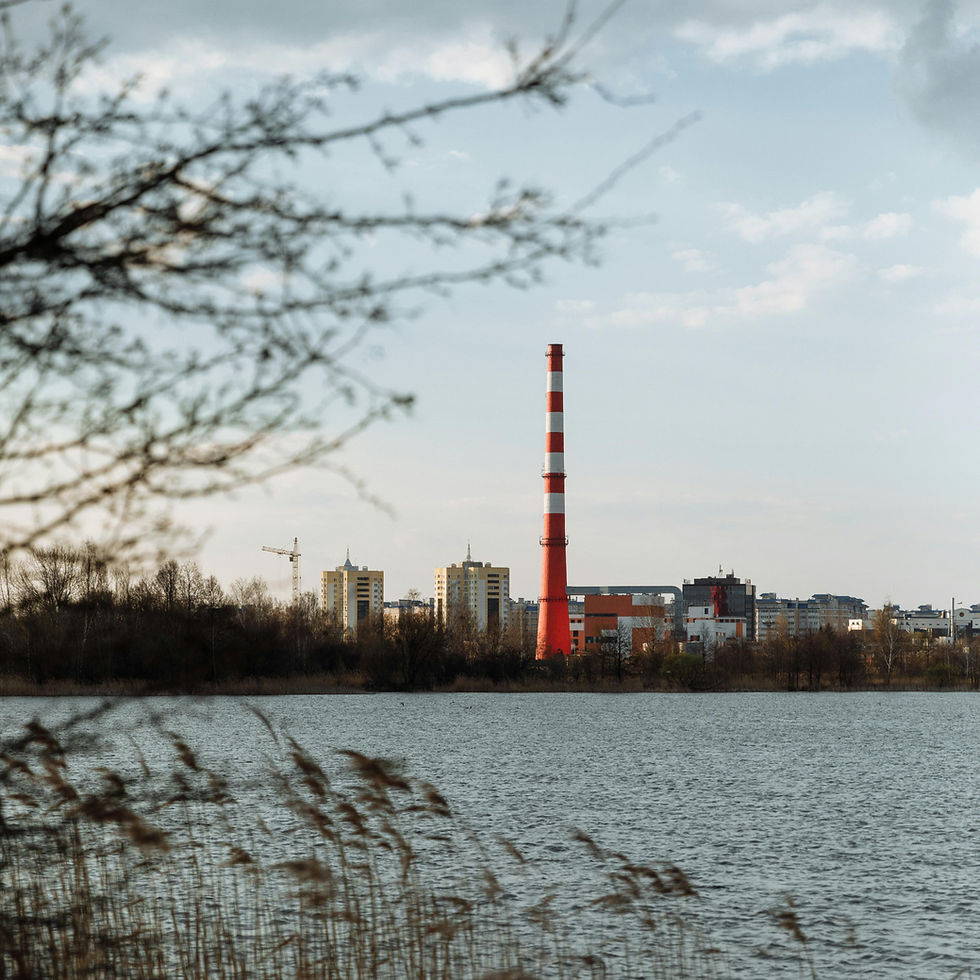Investment Choice: It's Not Black and White
- Sarah Warner

- Jul 11, 2025
- 4 min read

Whether it be your approach to responsible investment, or the active versus passive conundrum, everyone should have the opportunity and the choices available to select their own shade of grey, and have access to the unbiased information they need to make informed choices.
To be a responsible investment manager is therefore to provide two things, plentiful, relevant and accurate material, and suitable choice.
We are currently in uncertain times, this is the first time Europe has seen a conflict on the scale of Russia’s invasion of Ukraine since World War II, and where conflict is also prevalent across the globe, with no continent having an assured future. This makes investment decision-making even more complex, as well as how to approach investing with an effective ESG lens and moral compass.
Baroness Catherine Ashton spoke recently at the Future Investment Festival 2025 in London and reflected on her extensive experience in diplomacy, and managing conflicts across the globe. While traditionally we see geopolitics as a macroeconomic driver, economics can prove to be the driver of geopolitical chaos.
Baroness Ashton used the Arab Spring in 2010, as an example of this, as she was involved in the EU’s strategic response, as the High Representative/Vice President (HR/VP) of the commission, during this time. This began with just one man, Mohamed Bouazizi, who lived in a small place outside of Tunisia, and was financially supporting his entire family by selling fruit and vegetables that he had grown. Unemployment was very high, despite many young men being educated and capable of economic contribution, they could not get employment. One day the police approached Mohamed whilst he was selling his wares, and asked for his ‘permit’ which was really the demand of a bribe, but Mohamed had no money to pay this bribe. Mohamed was so desperate he set fire to himself and died 2 weeks later from his injuries.
This tragic incident prompted a wave of pro-democracy protests and uprisings that began in 2010 and spread across the Middle East and North Africa. It challenged deep-rooted dictatorial regimes in countries like Tunisia, Egypt, Libya, and Syria. The movement involved both violent and non-violent demonstrations, leading to significant political changes in some nations, while others experienced ongoing conflict. The term "Arab Spring" reflects the hope for democratic reform and social justice that emerged during this period. When Baroness Ashton spoke with the young men in these areas at the time and she asked what they need, they simply replied ‘we only want what you have’, starkly emphasising that those who live within a democracy, don’t even have to think about having it. The EU response stressed the need for political participation, dignity, freedom and employment opportunities, and set out an approach based on the respect of universal values and shared interests.
Areas of economic inequality have an impact far wider than where it begins, as economics drive geopolitics, war and conflict, which is not good for any nation, for no country exists in a vacuum. Significant world challenges such as economic growth, war, conflict, pandemics, serious and organised crime, cannot be solved by any single country alone. The economic effects of conflict on the global economy are far reaching and include a decrease in investment, trade, and productivity. Furthermore, the destruction of human and physical capital, including through forced displacement, has a devastating effect on education and health care. Conflict also leads to increased poverty and hunger, disruption of energy trade, (as Russia is a prominent provider of natural gas), disruption of commodity trade, services and travel, and debt servicing and finance.
Where does this leave the often muddled area of ESG values when it comes to investing in defence stocks? It is a lot clearer when it comes to tobacco or adult entertainment that the harm is significant and there is no positive qualities to be identified from these activities. But defence is trickier, like nuclear power, and people vary in their ethical concerns and priorities. Everyone has their own set of values that drive their principles, and priorities when it comes to investing responsibly. We are now in a time where we cannot rely on US stability, and perhaps there is becoming a change in perception of defence. Perhaps some investors view defence, in certain forms, as being a necessary part of achieving peace and protecting countries and people who don’t have the democracies, or guaranteed safety, defences and opportunities that bigger, richer, more powerful countries do.
So in conclusion, it shouldn’t just be sustainable and responsible investors that care about conflict and a fair and equal global economy. We all should care, not just from a moral position, but a stable investment growth aspect also. Also, what’s considered “ethical” can vary hugely between individuals, and their view might change depending on the situation? So, can investing in arms be ethical? Ultimately, it’s a personal choice and one you might want to review if you consider ESG factors when investing. To make such considerations easier for investors, they need choice and also all the relevant information, including the ESG disclosures concerning a portfolio. Hence at Alpha Beta Partners, we have rolled out our ESG research and analysis across our propositions rather than it being something restricted to sustainable propositions. This way we can incorporate ESG risks and opportunities across the ranges and be transparent on an additional level on where clients’ money is ultimately invested.




